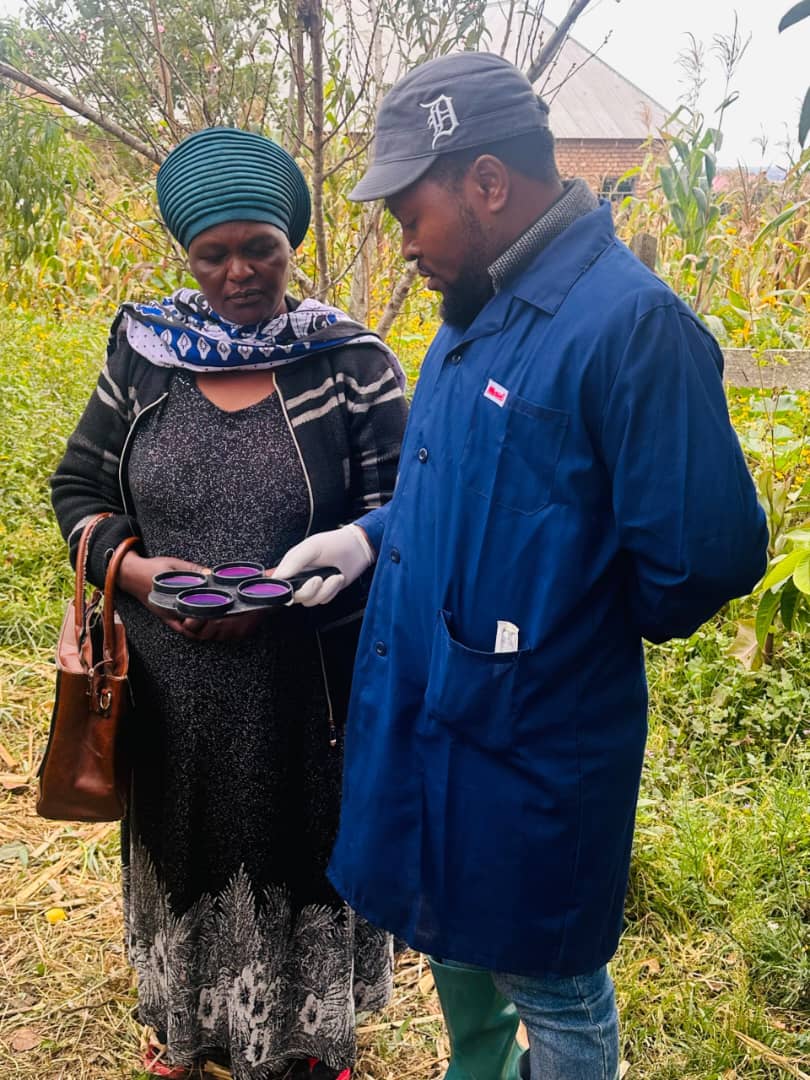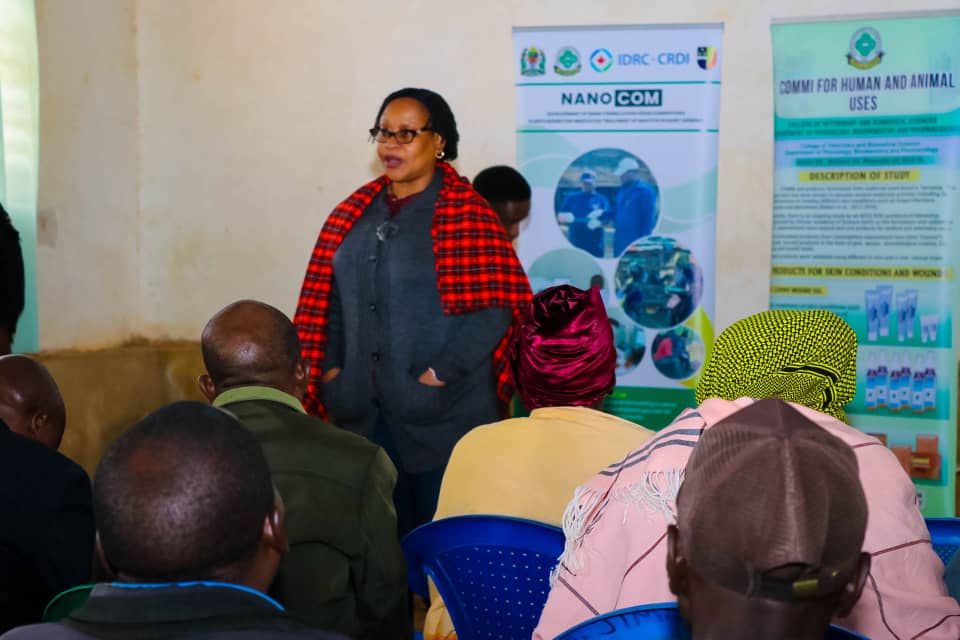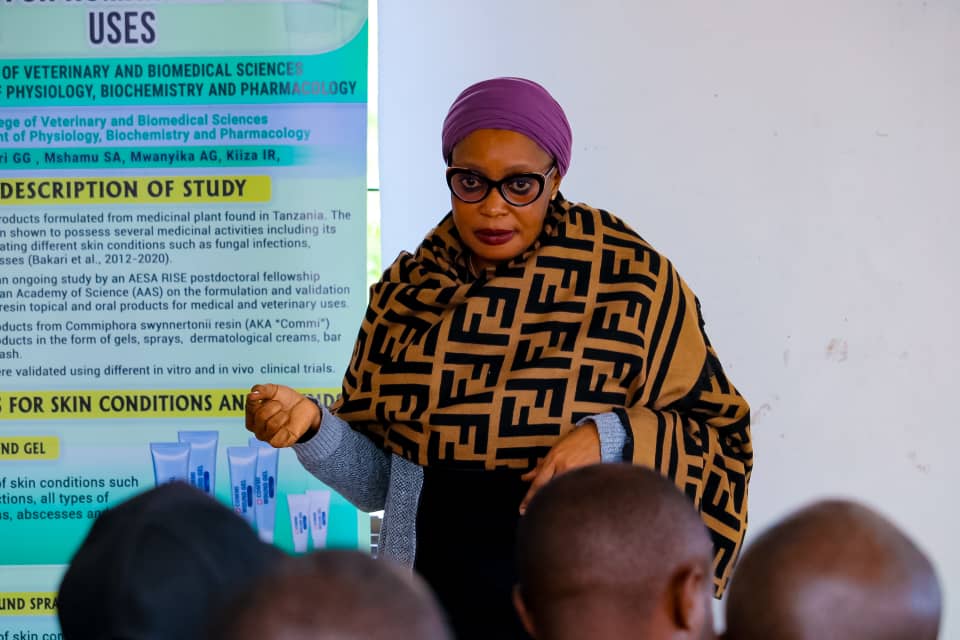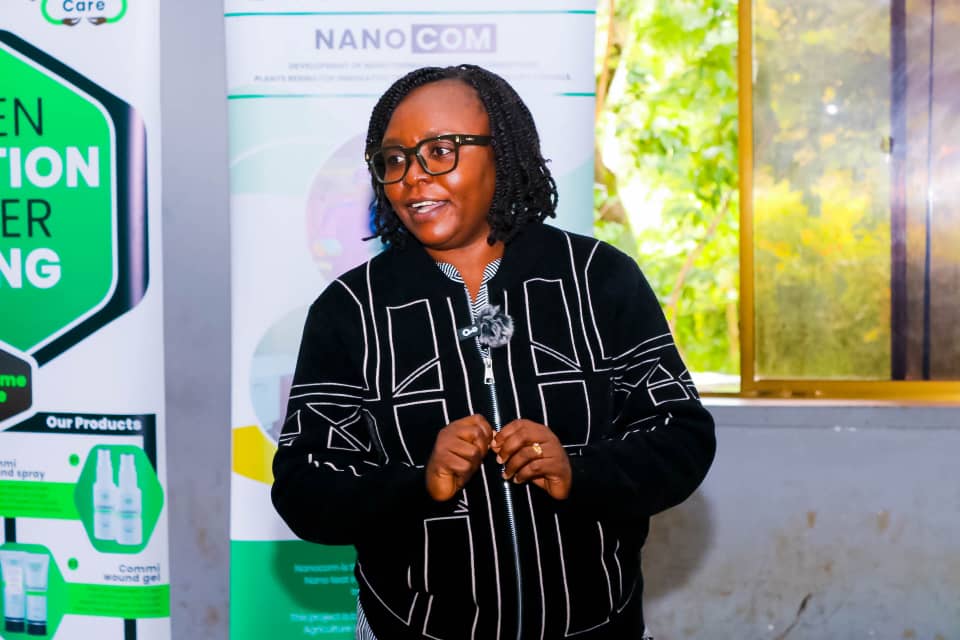Livestock keepers have shown enthusiasm and readiness to adopt a new herbal medicine designed to treat mastitis in dairy animals, an initiative expected to reduce treatment costs and boost productivity.

Speaking to SUA MEDIA after receiving specialized training from Sokoine University of Agriculture (SUA) on effective methods to control mastitis and address antimicrobial resistance, livestock keepers Gabriel Fuime, Hawa Ally Mbata, and Kalekwa Abdala described the new treatment as a source of renewed hope.

“We’ve been using expensive medicines that don’t work well for us. Now, we’re getting a solution that suits both our economic conditions and local environment,” said Kalekwa Abdala on behalf of the group.
Hawa Ally Mbata added that while the use of herbal remedies is part of their tradition, they lacked scientific knowledge on their proper use. “Now, experts have enlightened us by developing a professionally formulated herbal treatment locally,” she said.
Professor Gaymary Bakari, a lecturer at the Faculty of Veterinary Medicine and Health Sciences at SUA and Project Lead of NANO COM, explained that the new medicine is derived from medicinal trees. The initiative is part of broader efforts to develop accessible and affordable treatments for livestock keepers.

She stated that the project aims to reduce the high cost of treatment that often prevents livestock owners from completing medical regimens, thereby decreasing livestock productivity.
“These medicines have already shown promising results in early research stages,” said Prof. Gaymary.
Peter Raymondi Sigunga, the Livestock Officer for Kitwiru Ward, expressed gratitude to the Sixth Phase Government under President Samia Suluhu Hassan for facilitating research in Iringa He noted that over 98% of livestock are affected by mastitis.

“Thirty-eight livestock keepers from Kitwiru and Mkimbizi wards have received training, including 18 women. This marks the beginning of a revolution in livestock treatment,” said Sigunga.
The project is being implemented under NANO COM, run by SUA and funded by Canada’s International Development Research Centre (IDRC). It aims to improve animal health, food safety, nutrition, and income through the dairy value chain.





